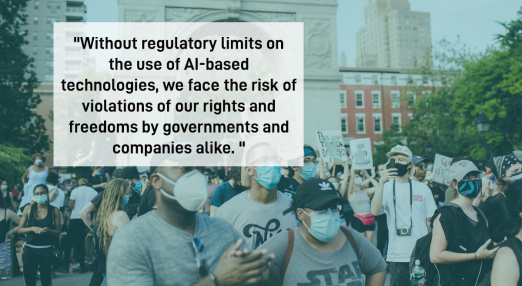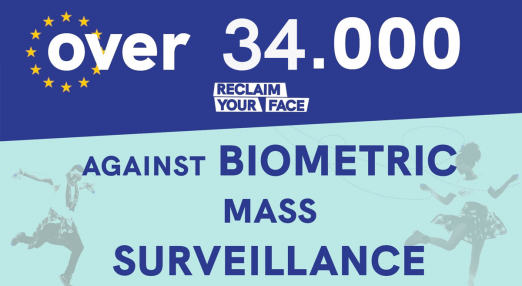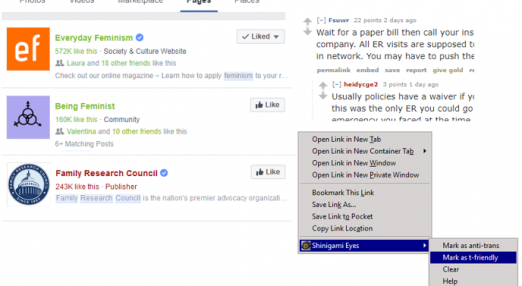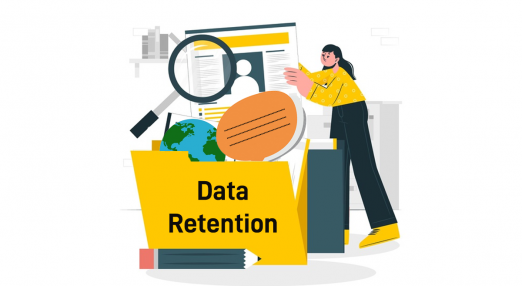Our work
EDRi is the biggest European network defending rights and freedoms online. We work to to challenge private and state actors who abuse their power to control or manipulate the public. We do so by advocating for robust and enforced laws, informing and mobilising people, promoting a healthy and accountable technology market, and building a movement of organisations and individuals committed to digital rights and freedoms in a connected world.
Filter resources
-

This is the EU’s chance to stop racism in artificial intelligence
Human rights mustn’t come second in the race to innovate, they should rather define innovations that better humanity. The European Commission's upcoming proposal may be the last opportunity to prevent harmful uses of AI-powered technologies, many of which are already marginalising Europe's racialised communities.
Read more
-

116 MEPs agree – we need AI red lines to put people over profit
In light of the upcoming proposal for the regulation of artificial intelligence in Europe, 116 Members of the European Parliament (MEPs) have written to the European Commission’s leaders in support of EDRi’s letter calling for red lines on uses of AI that compromise fundamental rights.
Read more
-

Eurodac database repurposed to surveil migrants
Eurodac is the EU database used to store asylum seekers’ and refugees’ data, as well as certain categories of “irregular” migrants. By the end of 2019, the EU stored almost 6 million peoples’ fingerprint sets in the database. Research show how legislative developments transform the Eurodac database into “a powerful tool for mass surveillance”, endangering migrants' fundamental human rights.
Read more
-

EDRi-gram, 10 March 2021
Unless we take strong action, people in Europe could soon face the end of our privacy and anonymity in public spaces as we know it. We need to rise against the growing use of sinister, unnecessary and disproportionate technologies in our public spaces which abuse our faces. 34,000+ incredible supporters have already joined the fight by officially signing our formal “European Citizens’ Initiative”. Help us reach one million signatures by spreading the word, mobilising your friends and family and even writing to your national or European Parliamentary representatives.
Read more
-

Google’s FLoC Is a Terrible Idea
Google is leading the charge to replace third-party cookies with a new suite of technologies to target ads on the Web. And some of its proposals show that it hasn’t learned the right lessons from the ongoing backlash to the surveillance business model. In this post, EDRi's member Electronic Frontier Foundation (EFF) will focus on one of those proposals, Federated Learning of Cohorts (FLoC), which is perhaps the most ambitious—and potentially the most harmful.
Read more
-

#ReclaimYourFace and help prevent the end of privacy as we know it!
Facial recognition and other biometric surveillance threatens the core of our right to privacy and data protection by surveilling and judging us. This is why across Europe, we’re calling to ban biometric mass surveillance practices. We’re counting on EU citizens to sign our ECI petition, and on everyone to spread the word and make sure that European governments cannot ignore our demand.
Read more
-

Why Facebook’s proposed hate speech policy on Zionism would only add fuel to the fire
Pressured to combat surging hate speech and anti-Semitism on its platform, Facebook is looking into how it should moderate the use of the word “Zionist,” and whether to add the term as a protected category under its hate speech policy. EDRi's member Access Now doesn’t think that is a good idea, particularly given Facebook’s inability to strictly adhere to human rights principles in its content moderation practices.
Read more
-

Electronic Frontier Norway (EFN) reports “Shinigami Eyes” to the Norwegian DPA for violation of GDPR
EDRi member Electronic Frontier Norway (EFN) found that the use of the program “Shinigami Eyes” and the operation of the database it uses constitute multiple violations of the GDPR and its Norwegian implementation. The most egregious of these being the clear violation of Article 9 which prohibits the registrations of people’s political views, philosophical convictions and physical persons sexual relations or sexual orientations etc.
Read more
-

CJEU upholds strict requirements for law enforcement access to electronic communications metadata
Traffic and location data may allow precise conclusions to be drawn about the persons involved, e.g. their social relationships or the social environments frequented by them. In most cases, the CJEU has only allowed access to such data for serious crimes. However, the CJEU ruled that access to retained data is only allowed in cases of serious crime when the access implies a serious interference, and in all criminal cases when the access does not imply a serious interference.
Read more
-

At a glance: Does the EU Digital Services Act protect freedom of expression?
The Digital Services Act is in many ways an ambitious piece of legislation that seeks to make ‘Big Tech’ accountable to public authorities through new significant transparency and due diligence obligations. It also contains many provisions that could help protect users’ fundamental rights. Whether it will be successful at protecting freedom of expression from undue restrictions or reining in the power of Big Tech rather than cementing it, is, however, questionable. EDRi's member ARTICLE 19 share its first thoughts on why.
Read more
-

“Anytime and anywhere”: Vaccination, immunity certificates, and the permanent pandemic
The deployment of vaccines, and in particular any “immunity passport” or certificate linked to the vaccination, must respect human rights. EDRi's member Privacy International (PI) reveals some of the broader human rights, ethical and societal implications of vaccination "passports".
Read more
-

Targeted Online: How Big Tech’s business model sells your deepest secrets for profit
Surveillance-based advertising which is currently the business model used by Google, Facebook and many others is harmful to people and to society as a whole because it encourages the spread of disinformation. It's also bad for the media who lose control of their ad space and suffer from decreasing revenue as a result.
Read more
